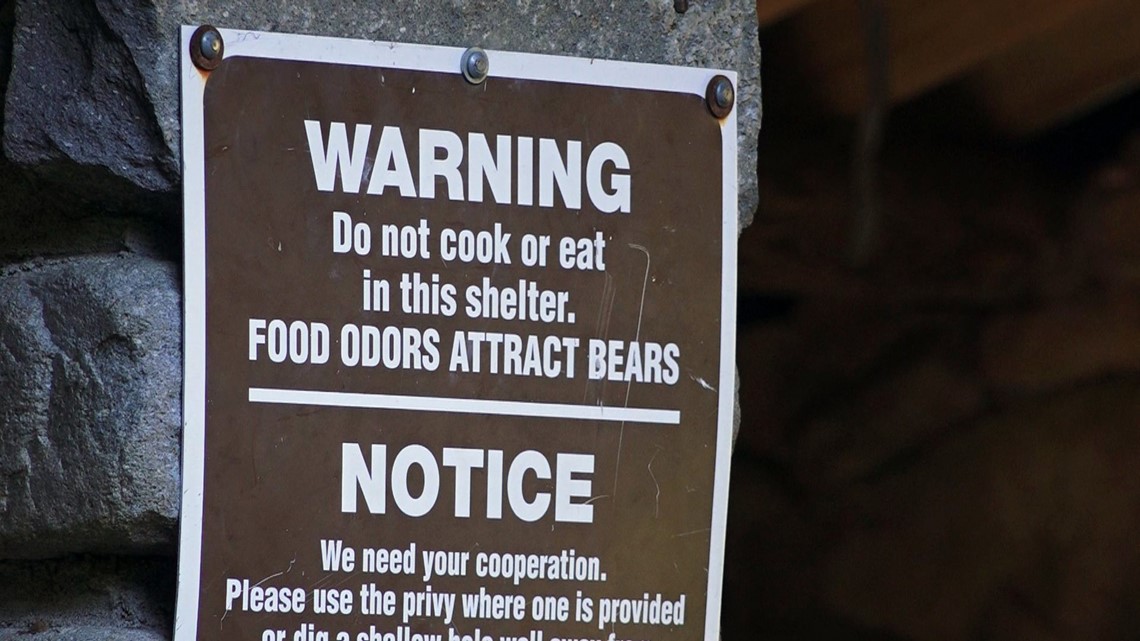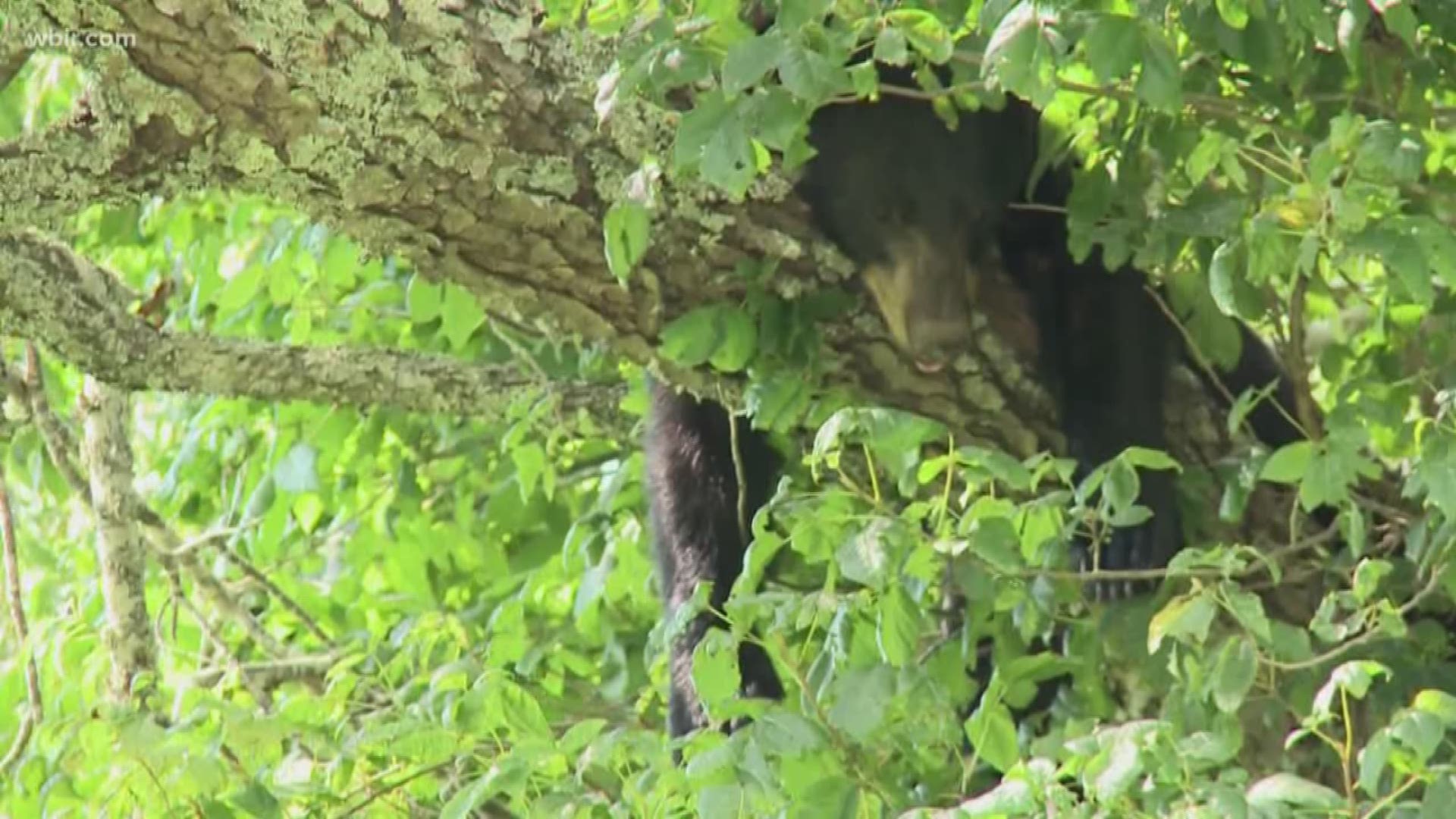Great Smoky Mountains — Of the 2,200 miles the Appalachian Trail covers from Georgia to Maine, hikers experience the highest peaks on the 70-mile stretch through the Great Smoky Mountains in North Carolina and Tennessee. The national park is also where A.T. hikers encounter the highest density of black bear populations.
Conflicts between humans and bears on the Appalachian Trail often occur where hikers sleep.
"It is very important for hikers and backpackers to keep their food away from them while they are sleeping," said Holly Jones, Director of Community Outreach for the non-profit Friends of the Smokies. "That's why the Friends of the Smokies and the Appalachian Trail Conservancy (ATC) have been partnered to install and maintain the bear cabling systems at the backcountry shelters in the park."

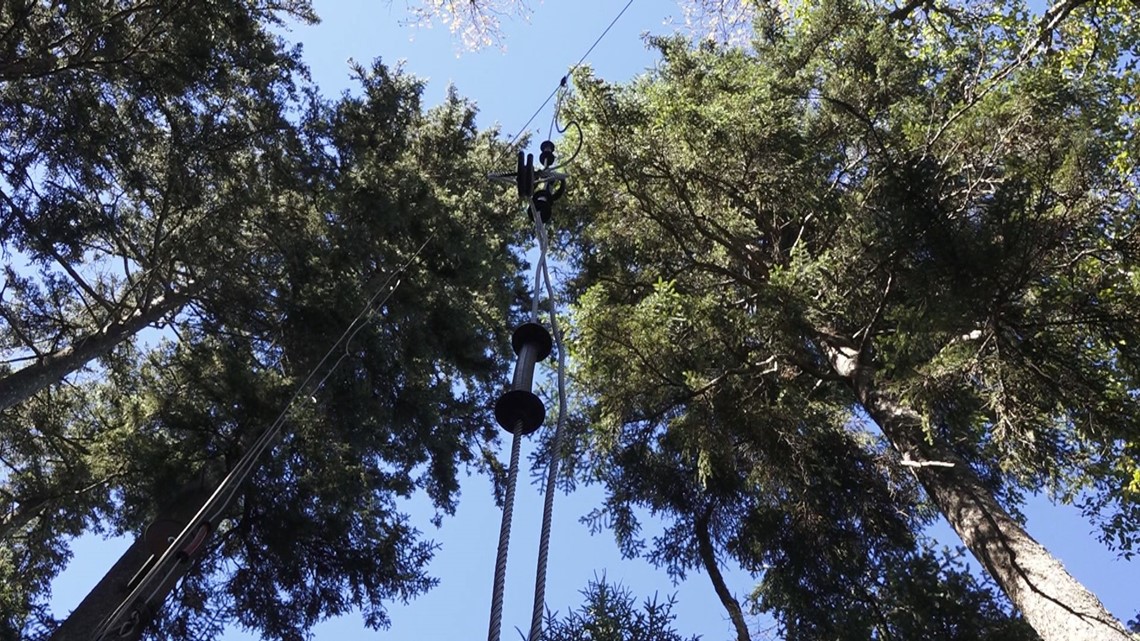
The cables at the shelters allow hikers to hoist their backpacks and food-bags high in the air, out of reach of bears and many other woodland critters.
"It makes things safer for hikers and bears. It keeps the bears from being habituated to looking to hikers and their backpacks as a source of food," said Jones. "The cables need maintenance each year. They get worn out because it is a friction pulley system and gets a lot of wear-and-tear."

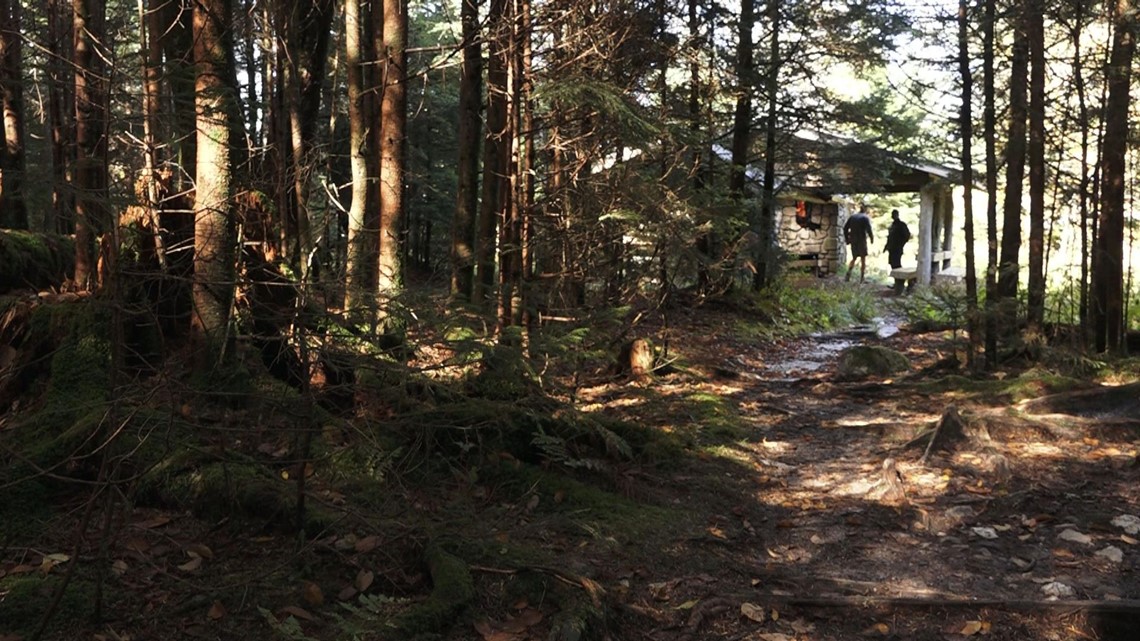
Specialty license plates fund the program. The ATC uses its North Carolina license plate sales to fund an annual $4,000 grant for food storage cables. The grant goes to the Friends of the Smokies, which then sends the money to the National Park Service. Friends of the Smokies then covers any additional costs for the program using revenue from its own specialty license plate sales in Tennessee and North Carolina.
"So many people love black bears. That's why many people come to the Smokies is to see them. This program helps keep them wild," said Jones.

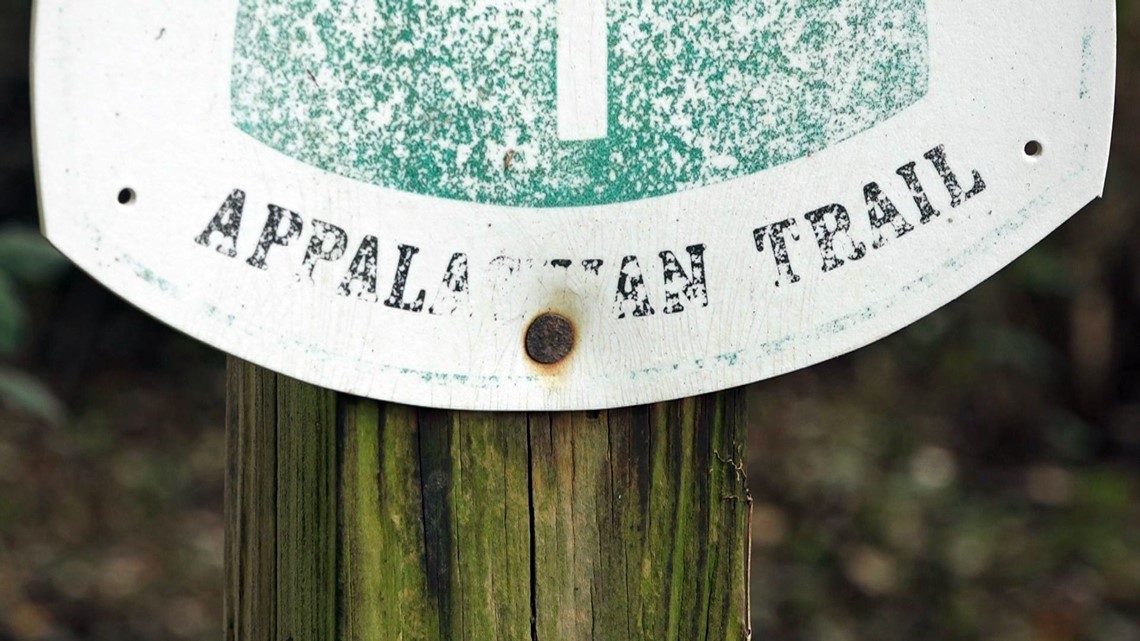
Friends of the Smokies specialty license plates are available for an additional $35 fee in Tennessee. Jones says nearly all of the money goes to protect and preserve the national park.
"The Friends of the Smokies was one of the first specialty license plates in Tennessee. Around $31 of that fee goes directly to programs that help the Smokies," said Jones.

